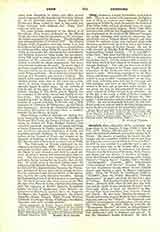

Owen, NICHOLAS, a Jesuit lay-brother, martyred in 1606. There is no record of his parentage, birthplace, date of birth, or entrance into religion. Probably a carpenter or builder by trade, he entered the Society of Jesus before 1580, and had previously been the trusty servant of the missionary fathers. More (1586-1661) associates him with the first English lay-brothers. He was imprisoned on the death of Bl. Edmund Campion for openly declaring that martyr’s innocence, but afterwards served Fathers Henry Garnett and John Gerard for eighteen years, was captured again with the latter, escaped from the Tower, and is said to have contrived the escape of Father Gerard. He was finally arrested at Hindlip Hall, Worcestershire, while impersonating Father Garnett. “It is incredible”, writes Cecil, “how great was the joy caused by his arrest… knowing the great skill of Owen in constructing hiding places, and the innumerable quantity of dark holes which he had schemed for hiding priests all through England.” Not only the Secretary of State but Waade, the Keeper of the Tower, appreciated the importance of the disclosures which Owen might be forced to make. After being committed to the Marshalsea and thence removed to the Tower, he was submitted to most terrible “examinations” on the Topcliffe rack, with both arms held fast in iron rings and body hanging, and later on with heavy weights attached to his feet, and at last died under torture. It was given out that he had committed suicide, a calumny refuted by Father Gerard in his narrative. As to the day of his death, a letter of Father Garnett’s shows that he was still alive on March 3; the “Menology” of the province puts his martyrdom as late as November 12 He was of singularly innocent life and wonderful prudence, and his skill in devising hiding-places saved the lives of many of the missionary fathers.
S. ANSELM PARKER

